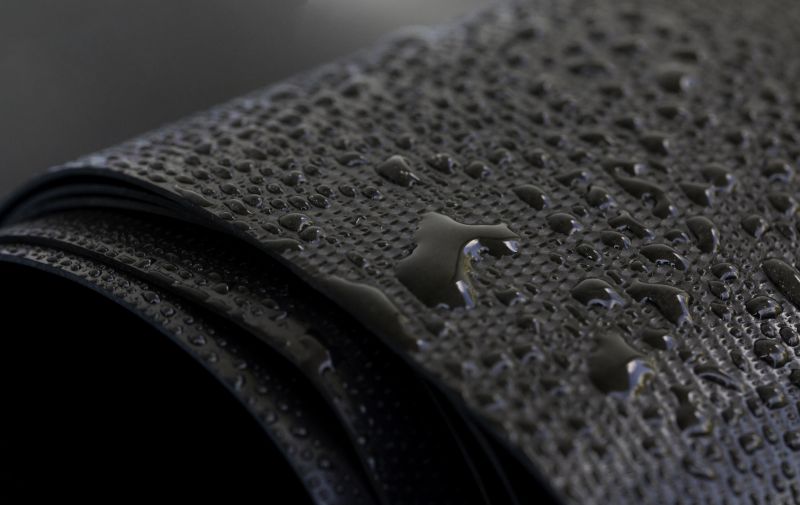Top Waterproofing Products for Reliable Protection
Discover leading waterproofing solutions designed to safeguard your property from water damage and ensure long-lasting durability.
 Waterproofing products are essential for protecting structures from moisture intrusion, which can lead to damage, mold growth, and structural deterioration. Whether addressing basement leaks, roof vulnerabilities, or foundation sealing, selecting the appropriate waterproofing solutions is crucial for long-term durability. These products come in various forms, including liquid coatings, membranes, sealants, and tapes, each tailored for specific applications and surfaces. Proper application and compatibility with existing materials are key factors to ensure effectiveness and longevity.
Waterproofing products are essential for protecting structures from moisture intrusion, which can lead to damage, mold growth, and structural deterioration. Whether addressing basement leaks, roof vulnerabilities, or foundation sealing, selecting the appropriate waterproofing solutions is crucial for long-term durability. These products come in various forms, including liquid coatings, membranes, sealants, and tapes, each tailored for specific applications and surfaces. Proper application and compatibility with existing materials are key factors to ensure effectiveness and longevity.
Top Overall Option
Versatile Liquid Waterproofing Coating
A high-quality liquid waterproofing coating that provides a seamless, flexible barrier against moisture. Suitable for roofs, foundations, and walls, it adheres well to various surfaces and offers durable protection when properly applied. Its ease of use and reliable coverage make it a popular choice for many waterproofing projects.
Types of Products For Waterproofings
Liquid Waterproofing Membranes
Flexible liquid coatings applied with brushes or rollers to create a seamless waterproof barrier on roofs and foundations.
Bituminous Coatings
Asphalt-based products used for sealing and waterproofing underground structures and roofing surfaces.
Polyurethane Sealants
Elastic sealants ideal for filling cracks and joints in concrete and masonry to prevent water ingress.
Rubberized Waterproofing Sheets
Rubber membranes that are laid over surfaces for durable, sheet-based waterproofing solutions.
Cementitious Waterproof Coatings
Waterproof cement-based coatings suitable for basements and tunnels, providing a hard, protective layer.
Waterproofing Tapes
Self-adhesive tapes used to seal joints, cracks, and seams in various surfaces for quick repairs.
Spray-On Waterproofing
Sprayable coatings that form a waterproof layer, often used on roofs and decks for quick application.
Polyethylene and PVC Sheets
Plastic sheets used beneath slabs or over surfaces to prevent water infiltration from below.
Crystalline Waterproofing
Chemical treatments that penetrate concrete and form crystals to block water pathways internally.
Bitumen Felt Sheets
Traditional roofing and waterproofing sheets made from bitumen, often layered for enhanced protection.
Popular Choices
Widely used for their ease of application and seamless coverage on various surfaces.
Common for roof and foundation applications, offering durable, sheet-based protection.
Popular for sealing joints and cracks in concrete and masonry structures.
Chosen for their flexibility and strong waterproof barrier properties.
Often used in basements and tunnels, appreciated for their hard, protective layers.
Convenient for quick repairs and sealing around joints and seams.
Favored for quick coverage on roofs and decks in various projects.
Commonly used as vapor barriers or beneath slabs for water protection.
Effective for internal concrete waterproofing, especially in underground structures.
In residential settings, waterproofing is often used to safeguard basements and crawl spaces from groundwater seepage. For commercial or industrial buildings, more robust solutions may be necessary to withstand higher stress and exposure. Maintenance and inspection are also important, as even the best waterproofing products can degrade over time due to weathering or physical damage. Regular upkeep can help identify issues early and extend the lifespan of the waterproofing measures.
Choosing the right waterproofing product involves understanding the specific needs of the project, including the type of surface, exposure level, and environmental conditions. Proper surface preparation, such as cleaning and priming, enhances adhesion and performance. Additionally, safety precautions during application, such as wearing protective gear and working in well-ventilated areas, should not be overlooked. Consulting with professionals or thoroughly reviewing product instructions can help ensure optimal results and protect your property effectively.
Key Buying Considerations
- Identify the specific area or surface requiring waterproofing to select the appropriate product type.
- Consider the exposure level and environmental conditions, such as standing water or continuous moisture contact.
- Check compatibility with existing materials like concrete, wood, or metal surfaces.
- Evaluate the ease of application, including tools needed and drying time.
- Assess the flexibility and durability of the product to accommodate surface movements.
- Look for products with good adhesion properties to prevent peeling or cracking.
- Determine the longevity and maintenance requirements of the waterproofing solution.
- Review safety instructions for application, especially for chemical-based products.
- Consider whether a seamless coating or sheet-based system best fits the project needs.
- Verify if the product is suitable for interior, exterior, or underground applications.
- Examine the manufacturer's instructions regarding surface preparation for optimal results.
- Evaluate the compatibility with other waterproofing or building materials used in the project.
- Assess the availability of the product and ease of procurement locally or online.
- Think about the potential need for professional installation versus DIY application.
- Review any warranties or guarantees offered by the manufacturer for peace of mind.
This page contains affiliate links. We may earn a commission if you make a purchase through these links, at no additional cost to you.
